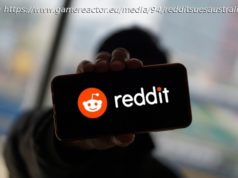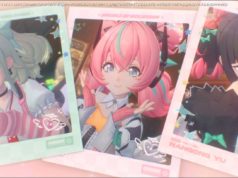Bubblegum and Marceline have a moment. Finn and Jake save the world. But find out what Adventure Time executive producer Adam Muto said about the series finale, “Come Along With Me.” Spoilers ahead!
Cartoons have experienced something of a renaissance over the last decade, which many attribute to one special series: Adventure Time. The Cartoon Network show reinvigorated the cable channel after staples like Dexter’s Laboratory, The Powerpuff Girls, Ed, Edd n Eddy, and Samurai Jack had petered out and the future of its original animation was unclear.
Now, after eight years and 10 seasons on the air, the coming-of-age dramedy is over, and what a legacy it’s leaving behind it: Fans of other cult favorites like Steven Universe and Gravity Falls have Adventure Time to thank for unlocking the potential of imaginative characters who adventure through worlds not bound to conventional logic; Adventure Time gave us the chance to grow alongside Finn the Human and Jake the Dog, our heroes, as they plunged into the depths of their friendly, if tragic, dystopian home.
A show with this much influence (not just aesthetically, but also with its mature, inclusive storytelling) can’t fade away quietly. Even as Adventure Time ’s innovations became less so over the years, supplanted by the growing success of its Cartoon Network sister shows, the cartoon remains an unforgettable leader in a golden age of animation.
Just before the premiere of “Come Along With Me,” the one-hour special that concludes the series, we spoke to executive producer Adam Muto about Adventure Time ’s impact — both that of the finale as well as the show overall.
[ Warning: There are spoilers before for at least one key scene in the episode. Don’t read this until you’ve watched the finale!]
How did you envision ending the series? Does this episode fit into that original plan?
Adam Muto, executive producer: If [ Adventure Time] ended after season five, it would have had a very different ending. We didn’t have a definite, “This is the exact story that’s going to be in the end.” We had images from the finale in our heads, and that was as much as you could kind of plan in advance. That last image with Finn and Jake, I had an idea of what that would mean to me.
The story itself, I think, definitely — maybe season eight, [we] kind of figured out what the shape of the finale would be. Until they told us, “This is definitely the end,” you almost couldn’t commit to what the story would be.
Adventure Time has gone to dark places before, but this ending feels like a happy one. Does that feel earned and appropriate?
I don’t even know how happy it is, to be honest. The future version of Ooo is not that cheery of a place. You get the sense that another apocalypse has sort of happened in the meantime. That was kind of something the show was built on, too. Obviously Shermy [who appears in the episode bookends set further ahead in time] has got Finn-like qualities, and these analogies could exist.
The show kind of came out of a conflict — we kept alluding to the Great Mushroom War. We were never really gonna show that in the life of the show. [But] it made sense to have a conflict like that at the end, or at least be the backdrop. The idea of having all of characters running at each other and fighting isn’t really the spirit of the show.
In the end, that conflict is diffused. [There are] so many stories that kind of end with the last stand of a world. I think it is the end, but it just keeps going, and people just keep living their lives.
What surprised you about where Adventure Time ended up from where it started — from something lighthearted to a more serious show?
I don’t know if it was core, but it felt natural. Even at the beginning — especially [series creator Pendleton Ward] and Pat McHale — we talked about it being serialized.
The continuity is sort of a light continuity, and it sort of gains momentum throughout the show. I’m surprised that we got to that point, because that’s not where [Cartoon Network] wanted us to get to. It just kind of gained momentum.
By the end the show — it’s hard to put myself outside of it — I can’t be too surprised, but it also didn’t feel like out of left-field. It felt like a very gradual process. It would be interesting to see what the season one finale would be.
There’s also a tendency to get nostalgic, even within the show. People’s memories of the show aren’t even necessarily how it played out. It was never as blithe as people think it was. It had very bright moments and very introspective moments of people getting down. Those get more complex over time, because [Finn] grew up.
Are there pieces of lore that remain unresolved?
I think it’s important to leave spaces to imagine, leaving those kind of ambiguous spaces. Not that we don’t have an idea of what happens with certain characters afterwards. There were larger questions, I think, and those are the ones, when they’re set up and baked into the show, you have some responsibility to address. What happened to every single character throughout their lives is not. Seeing everyone’s lives from their birth to their death like an appendix, I don’t think that’s the story.
Will Simon ever be cured? That was an important one to address. Beyond that, there were so many where it’s not necessarily important — where do Finn and Jake end up? What happens to them? How old do they get? Who do they marry? It’s important to focus on this section.
This was Finn’s childhood and on the cusp of becoming a good adult. Hopefully he’s a learned a lot and become a more complete person. He doesn’t even have a sword through most of the finale at all. The idea of him putting down a weapon as the way to resolve a larger conflict… this won’t help in the situation. I think that was an important thing, not trying to show that.
That’s also why The Lich didn’t come back as a villain. His story felt like it was over. if he came back again, it would feel like Skeletor — this evil that had to be defeated over and over again. If you can always defeat something and the day will be saved, it’s not as satisfying as something you can’t defeat — this thing that you can’t actually deal with in a direct way.
Marceline and Princess Bubblegum’s relationship was one of the most meaningful parts of the show, in terms of representation. What does the positive reaction to their pairing mean to you, and how did it influence their beautiful ending?
It felt like that was another question. It is set up enough by now that it needs a conclusion to feel satisfying. We can’t say what their life will be like from then on forever, but we can show where their relationship is now as opposed to where it was a couple years ago. Marceline is the adolescent forever, and Princess Bubblegum is the workaholic who doesn’t have anything outside of that.
Being on Cartoon Network, alongside shows like Steven Universe, I do think that we felt like we could do more than we could have back then.
Home
United States
USA — software Adventure Time showrunner doesn’t see the finale as a happy ending






